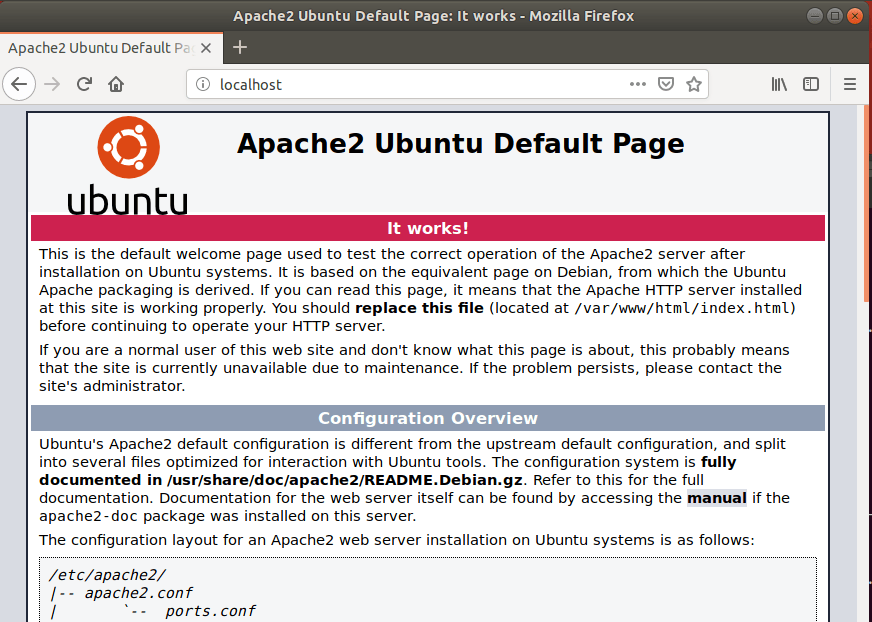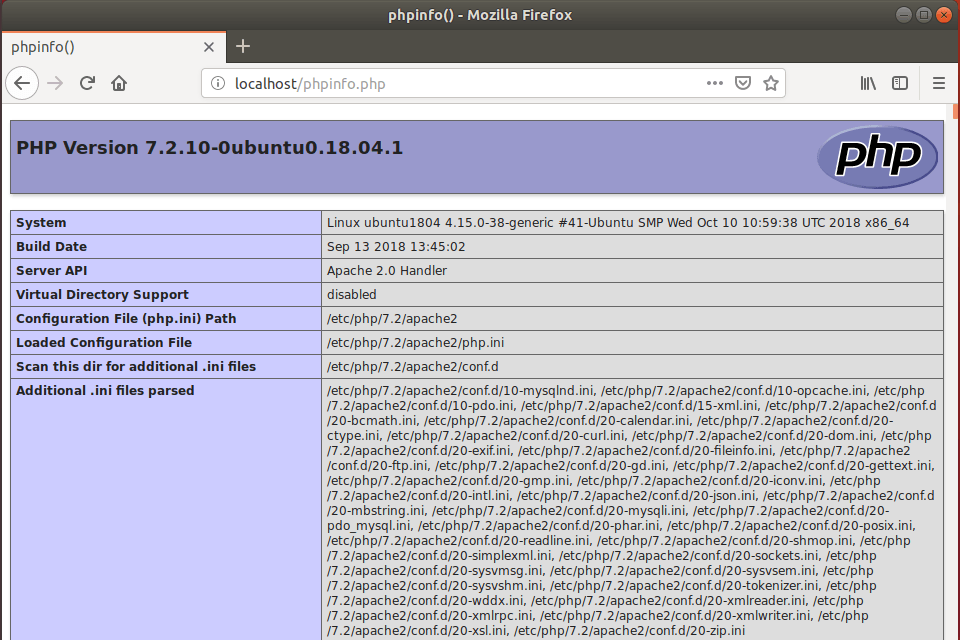clearFusion is a content management system (CMS) that is easy is both developer and user-friendly and gives you powerful sets of tools to help you easily build and manage high-quality websites. This CMS is robust and mobile-friendly and responsive out-of-the-box so your users can enjoy reading and interact with your website from any device. clearFusion CMS comes with an intuitive and powerful backend that will get you started right away without knowing anything about coding in HTML or CSS. You also get a powerful search tool, backend analytics, drag n drop media panel, and more. This CMS platform is designed for ease of use to allow webmasters to collaborate and automate engaging experiences with users across multiple devices, including mobile. For more about clearFusion, please check their Homepage To get started with installing clearFusion, follow the steps below:
Install Apache2 HTTP Server
You will need a web server to run clearFusion and the Apache2 HTTP server is the most popular open-source web server available today. So go and get it for clearFusion. To install the Apache2 server, run the commands below: After installing the Apache2 webserver, the commands below can be used to stop, start and enable the Apache2 service to always start up with the server boots. Now that Apache2 is installed. to test whether the web server is working, open your browser and browse to the URL below. If you see the page above, then Apache2 is successfully installed.
Install MariaDB Database Server
clearFusion also needs a database server to store its content. and MariaDB database server is a great place to start when looking at open-source database servers to use with clearFusion. To install MariaDB run the commands below. sudo apt-get install mariadb-server mariadb-client After installing MariaDB, the commands below can be used to stop, start and enable the MariaDB service always to start up when the server boots. Run these on Ubuntu After that, run the commands below to secure the MariaDB server by creating a root password and disallowing remote root access. sudo mysql_secure_installation When prompted, answer the questions below by following the guide.
Enter current password for root (enter for none): Just press the Enter Set root password? [Y/n]: Y New password: Enter password Re-enter new password: Repeat password Remove anonymous users? [Y/n]: Y Disallow root login remotely? [Y/n]: Y Remove test database and access to it? [Y/n]: Y Reload privilege tables now? [Y/n]: Y
Restart MariaDB server To test if MariaDB is installed, type the commands below to logon into the MariaDB server sudo mysql -u root -p Then type the password you created above to sign on. if successful, you should see MariaDB welcome message
Install PHP 7.2 and Related Modules
clearFusion is a PHP-based CMS and PHP is required. However, PHP 7.2 may not be available in Ubuntu’s default repositories. To run PHP 7.2 on Ubuntu 16.04 and previous, you may need to run the commands below: Then update and upgrade to PHP 7.2 sudo apt update Next, run the commands below to install PHP 7.2 and related modules. sudo apt install php7.2 libapache2-mod-php7.2 php7.2-common php7.2-sqlite3 php7.2-mysql php7.2-gmp php7.2-curl php7.2-intl php7.2-mbstring php7.2-xmlrpc php7.2-gd php7.2-bcmath php7.2-xml php7.2-cli php7.2-zip After installing PHP 7.2, run the commands below to open the PHP default configuration file for Apache2. The lines below are a good setting for most PHP-based CMS. Update the configuration file with these and save. Every time you make changes to the PHP configuration file, you should also restart the Apache2 web server. To do so, run the commands below: sudo systemctl restart apache2.service Now that PHP is installed, to test whether it’s functioning, create a test file called phpinfo.php in the Apache2 default root directory. ( /var/www/html/) sudo nano /var/www/html/phpinfo.php Then type the content below and save the file.
Next, open your browser and browse to the server’s hostname or IP address followed by phpinfo.php You should see the PHP default test page.
Create clearFusion Database
Now that you’ve installed all the packages that are required, continue below to start configuring the servers. First, create a clearFusion database. Run the commands below to log on to MariaDB. When prompted for a password, type the root password you created above. sudo mysql -u root -p Then create a database called clearfusion CREATE DATABASE clearfusion; Create a database user called clearfusionuser with a new password CREATE USER ‘clearfusionuser’@’localhost’ IDENTIFIED BY ’new_password_here’; Then grant the user full access to the clearfusion database. GRANT ALL ON clearfusion.* TO ‘clearfusionuser’@’localhost’ WITH GRANT OPTION; Finally, save your changes and exit.
Download clearFusion Latest Release
After installing the server and packages above, go and get the latest copy of clearFusion from its download site. After downloading, use the commands below to extract the archived content into the Apache2 root directory. Then run the commands below to set the correct permissions for clearFusion root directory and give Apache2 control.
Configure Apache2
Finally, configure the Apahce2 site configuration file for clearFusion. This file will control how users access clearFusion content. Run the commands below to create a new configuration file called clearfusion. conf sudo nano /etc/apache2/sites-available/clearfusion.conf Then copy and paste the content below into the file and save it. Replace the highlighted line with your domain name and directory root location. Save the file and exit.
Enable the clearFusion and Rewrite Module
After configuring the VirtualHost above, enable it by running the commands below Then open your browser and browse to the server domain name. You should see clearFusion setup wizard to complete. Before you can continue with the installation wizard, you must first register for a free license of clearFusion CMS. Get a license key and paste it into the box and continue. Next, validate that all requirements are met and continue. After that, you’ll then be asked to enter the database name, username, and password and create an admin account for the site. When you’re done, the site should be installed and ready to use. That’s it! Enjoy~ Congratulation! You have successfully installed clearFusion on Ubuntu 16.04 | 18.04 You may also like the post below:



